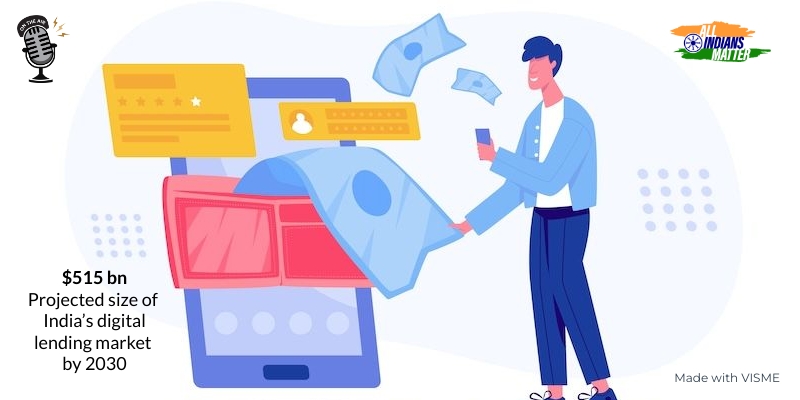Ashraf Engineer
June 25, 2022
EPISODE TRANSCRIPT
Hello and welcome to All Indians Matter. I am Ashraf Engineer.
I record this episode a day after I’ve tested positive for COVID-19. Thank God for technology, which lets me put together the show even at home. As I hang around quarantined at home with precious little to do, I have been trying to decide what is the greatest problem facing the average Indian at this moment. After much thought, I settled on the cost of living – in other words, inflation. Amid all the distressing news in India, at this moment, inflation is the worst. According to government data, India’s retail inflation rate, or the consumer price index, stood at 7.04% in May, off an eight-year high the previous month. This is way above the Reserve Bank of India’s tolerance limit of 6%. Alarmingly-high fuel prices, the rising cost of food and consumer goods… All of these are making life very, very tough. So what can you, the Indian consumer, do to beat inflation?
SIGNATURE TUNE
While there is little you can do to control inflation at a national level, you can reduce the stress on your finances by spending smartly, consuming efficiently and investing intelligently.
Here are a few strategies you could adopt:
First, plan your purchases in advance.
Check what you have at home and make a shopping list before you go to the store. Make sure it’s only things you need and stick to the list. No impulse buying, no falling for combo deals or pretty packaging. Also, here’s a tip to make sure you don’t spend on snacks sold at the supermarket: never go grocery shopping on an empty stomach. Food looks way more appealing when your stomach’s empty and you’re likely to end up buying that bag of chips or a packet of cupcakes, thus piling on the expenses, not to mention the extra pounds. So, eat before you head out.
Taking cash instead of your card helps you stick to the plan. Plastic has made purchases easier but it’s also made keeping track of how much you spend tougher. If you’re handing over cash, you’re more likely to be disciplined while buying supplies.
Second, let go of your brand fetish.
The money spent by large corporations on creating brands is recovered from you through high prices. You can avoid that by choosing in-house brands of large retail chains or unbranded products at your local kirana shop. Sure, not everything is available this way – for instance, toothpaste and soaps – but you can certainly find unbranded floor cleaners and detergents. When it comes to spices and condiments, avoid the packaged ones; opt instead to buy loose at a much lower price. Remember, it’s the fancy packaging and marketing that drives up the costs.
Third, keep an eye out for sales.
Sales are opportunities for wise spenders. Many stores offer discounts on non-perishables almost all year round. Paper towels, shampoo, cleaners, etc, are easily stored for long periods and can be bought when such sales are on. You can do the same for clothes during off-season sales, bringing down your spending by 25%-30%.
Fourth, minimise food wastage.
It is thought that the average urban household in India wastes 15%-20% of the food it buys. Assuming you spend Rs 15,000 a month on food, that’s Rs 2,250-Rs 3,000 worth of food thrown away every month. You can curtail waste through mindful consumption. So, do buy what you can in bulk from wholesale or supermarkets. But, of course, not everything can be bought that way because we’re talking about perishables here. However, things like potatoes and onions are perfect for bulk purchases because they can be stored for several days. Once you buy them, make sure you’re cooking only as much as you need and throwing away as little as possible.
Fifth, join a car pool.
Fuel prices have reached stratospheric levels. A car pool will distribute these costs with others headed in the same direction as you. In some cases, it has been reported that fuel bills have fallen by more than 50%. So, sit back on the days you aren’t the one driving, check your emails, chat with friends, catch up on news, take a nap! There are apps that help you connect with people in your neighbourhood for the pool. As an added benefit, it’s environmentally responsible too.
Sixth, carry a packed lunch to work.
By not ordering food from outside, you save a lot of money. Assuming there are 23 working days in a month and you’re spending Rs 150 on ordering food every day, you would land up saving Rs 3,450 every month if you carry food from home. Imagine that money going into a mutual fund every month. Also, home food is way healthier.
Seventh, put your money to work.
Never keep money idling in your bank account. Inflation chips away at its value, reducing its purchasing power. Let’s look at what a 10% inflation rate can do to your money. Let’s say you have Rs 50,000 in your account, it will grow to roughly Rs 52,000 in one year. But, by then, you will be able to buy things worth less than Rs 50,000 in today’s value with the Rs 52,000 you have. So, don’t get fooled by higher interest rates on saving accounts. Your money needs to grow fast to retain its purchasing power. Work with an investment advisor to choose the best options for you – these could be equity-based mutual funds, debt funds or any other instrument.
Inflation places a massive burden on us but that does not mean that we as individuals are completely helpless. By applying common-sense strategies and staying disciplined, we can stay on top it. How are you managing these tough times? I’d love to know. Write to me at editor@www.allindiansmatter.in.
Thank you all for listening. Please visit allindiansmatter.in for more columns and audio podcasts. You can follow me on Twitter at @AshrafEngineer and @AllIndiansCount. Search for the All Indians Matter page on Facebook. On Instagram, the handle is @AllIndiansMatter. Email me at editor@www.allindiansmatter.in. Catch you again soon.






